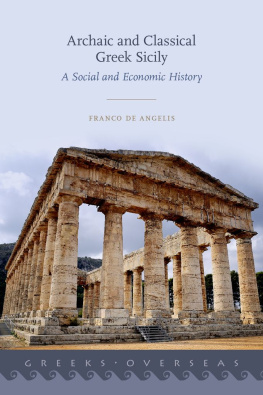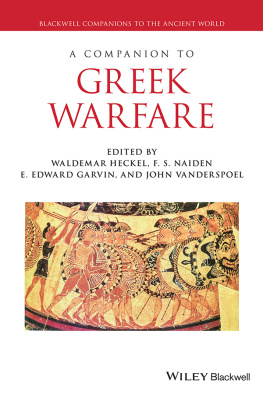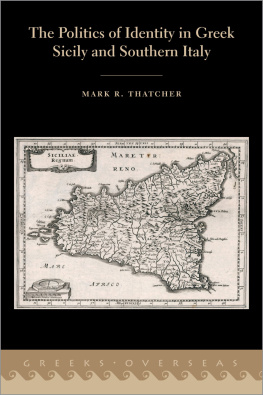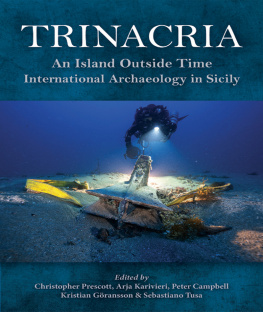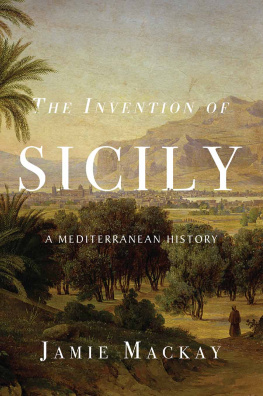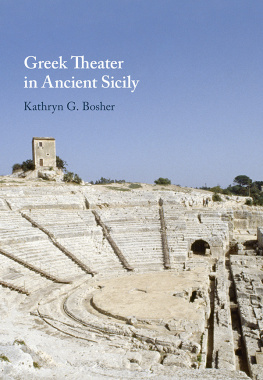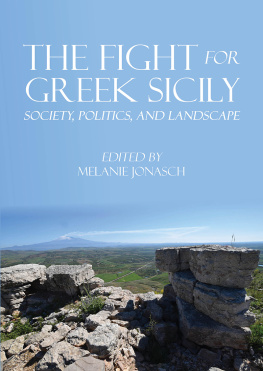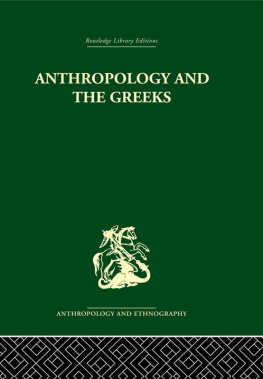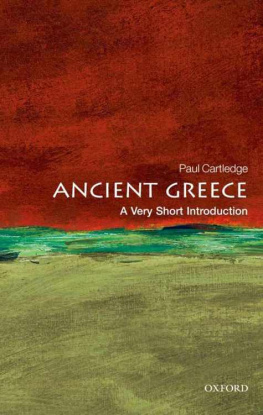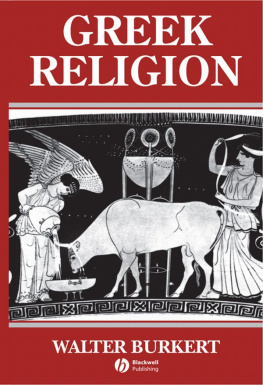Archaic and Classical Greek Sicily
GREEKS OVERSEAS
Series Editors
Carla Antonaccio and Nino Luraghi
This series presents a forum for new interpretations of Greek settlement in the ancient Mediterranean in its cultural and political aspects. Focusing on the period from the Iron Age until the advent of Alexander, it seeks to undermine the divide between colonial and metropolitan Greeks. It welcomes new scholarly work from archaeological, historical, and literary perspectives, and invites interventions on the history of scholarship about the Greeks in the Mediterranean.
A Small Greek World
Networks in the Ancient Mediterranean
Irad Malkin
Italys Lost Greece
Magna Graecia and the Making of Modern Archaeology
Giovanna Ceserani
The Invention of Greek Ethnography
From Homer to Herodotus
Joseph E. Skinner
Pindar and the Construction of Syracusan Monarchy in the Fifth Century B.C.
Kathryn A. Morgan
The Poetics of Victory in the Greek West
Epinician, Oral Tradition, and the Deinomenid Empire
Nigel Nicholson
Archaic and Classical Greek Sicily
A Social and Economic History
Franco De Angelis

Oxford University Press is a department of the University of Oxford. It furthers the Universitys objective of excellence in research, scholarship, and education by publishing worldwide.Oxford is a registered trade mark of Oxford University Press in the UK and certain other countries.
Published in the United States of America by Oxford University Press
198 Madison Avenue, New York, NY 10016, United States of America.
Oxford University Press 2016
All rights reserved. No part of this publication may be reproduced, stored in a retrieval system, or transmitted, in any form or by any means, without the prior permission in writing of Oxford University Press, or as expressly permitted by law, by license, or under terms agreed with the appropriate reproduction rights organization. Inquiries concerning reproduction outside the scope of the above should be sent to the Rights Department, Oxford University Press, at the address above.
You must not circulate this work in any other form and you must impose this same condition on any acquirer.
Library of Congress Cataloging-in-Publication Data
Names: De Angelis, Franco, author.
Title: Archaic and classical Greek Sicily : a social and economic history / Franco De Angelis.
Description: New York, NY : Oxford University Press, 2016. | Series: Greeks overseas | Includes bibliographical references and index.
Identifiers: LCCN 2015030331| ISBN 9780195170474 (hardback : alkaline paper) | ISBN 9780199721559 (e-book) | ISBN 9780190465339 (online) | eISBN 9780190613990
Subjects: LCSH: Sicily (Italy)HistoryTo 800. | GreeksItalySicilyHistory. | BISAC: HISTORY / Ancient / Greece.
Classification: LCC DG55.S5 D38 2016 | DDC 937/.802dc23 LC record available at http://lccn.loc.gov/2015030331
Contents
THIS BOOK WOULD not have been possible without the generous support of certain people and institutions. In the first instance I am especially grateful to Ian Morris (Stanford University), who approached me with the initial idea to publish this book, and to Elissa Morris, the then Classics Editor at Oxford University Press in New York, who oversaw the process of taking the book from proposal to contract. Their successors, Robin Osborne (Cambridge University) and Stefan Vranka, have been ever helpful and have seen the book through to completion. Particular key moments allowed the book to take shape. A generous three-year Standard Research Grant from the Social Sciences and Humanities Research Council of Canada made field and library work in Sicily and Italy possible. In 2005, at the invitation of Carla Antonaccio and Barbara Tsakirgis, I delivered a paper at their session Morgantina at Fifty (as part of the 106th Archaeological Institute of America Annual Meeting in Boston), which allowed me to lay the preliminary groundwork for the books introduction. Later that same year, I organized a workshop called Frontier History: Cross-cultural and Interdisciplinary Perspectives at the Peter Wall Institute for Advanced Studies, University of British Columbia, which allowed me to bring together several colleagues studying frontiers across time and space and which contributed greatly to my comparative and theoretical understanding of frontiers. I received generous support from the then director of the Institute, Dianne Newell, whom I would like to thank here. The book began to take shape during the 20072008 academic year, when I held a Research Fellowship from the Alexander von Humboldt Foundation at the Ludwig-Maximilians-Universitt in Munich. Subsequent research talks delivered especially in Berkeley, Cambridge, Gttingen, Leiden, Pisa, and Rome gave me the opportunity to air many of the ideas contained in the books various chapters. I am most grateful to my hosts for their invitations and to my audiences for their questions and comments. The three anonymous readers for Oxford University Press also supplied me with much valuable feedback on the various drafts of the manuscript. They provided much food for thought which I have taken on board and for which I am most grateful. Deepest thanks must be given to Robin Osborne for being an extraordinary overseer during the revision of the manuscript, for minding the small details with the big picture always in view and offering always the best possible advice. Deepest thanks must also be extended to Carla Antonaccio and Nino Luraghi for their comments and for welcoming this book into their series. Any misjudgments or errors that may result from the feedback of all these readers are entirely my responsibility. For photographs, other than my own or from the Monte Polizzo project with which I have been involved, I would like to thank the British Museum, the Hunterian Museum and Art Gallery of the University of Glasgow, the Museo Mandralisca, the Parco Archeologico di Himera (and its then director Dr. Francesca Spatafora), and Christine Lane. The original maps have been drawn by the talented Eric Leinberger (Department of Geography, University of British Columbia). I am most grateful to him and to my department for helping to subsidize the costs of their production. My students Odessa Cadieux-Rey and Heather Purves have been excellent editorial assistants as the final manuscript approached submission. A big thank-you is also due to them. The final word of thanks is reserved for Tara, Inessa, and Gisela. They have been by my side from start to finish of this book, patiently supporting me in all ways. Without them, this effort would not have been possible.
THE ABBREVIATIONS USED in citing ancient authors and their works follow those in the third edition of The Oxford Classical Dictionary (1996), edited by S. Hornblower and A. Spawforth, pp. xxixliv. Abbreviations for journal titles follow the conventions of LAnne Philologique. All other bibliographic abbreviations are listed below.
| AA.VV. | various authors |
| AnnalesESC | Annales. Economies, socits, civilisations |
| ASAA | Annuario della Scuola Archeologica di Atene e delle Missioni Italiane in Oriente |

